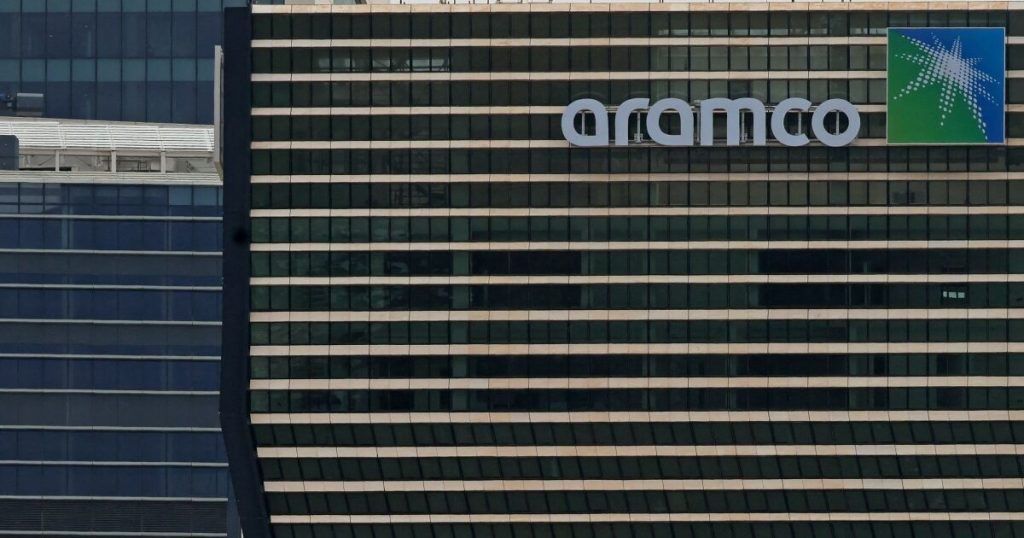Saudi Aramco, the world’s largest oil producer and a cornerstone of Saudi Arabia’s economic vision, experienced a 4.6% decline in net profits during the first quarter of 2025. This downturn, attributed to lower sales revenue and increased operating costs, reflects the volatile nature of global energy markets and the impact of broader economic uncertainties. The company’s net income for the quarter stood at $26.01 billion, down from $27.27 billion during the same period in 2024. This decrease underscores the challenges facing Aramco as it navigates a complex economic landscape marked by fluctuating oil prices and geopolitical tensions. The company’s performance is intrinsically linked to the Saudi government’s ambitious economic diversification plans, adding further significance to its financial results.
Aramco’s declining profits are partially attributed to the prevailing uncertainties in the global economy, particularly surrounding international trade. Concerns over the impact of US trade policies on global demand have contributed to a downturn in oil prices. This delicate balance between supply and demand, coupled with geopolitical factors, has created a challenging operating environment for oil producers. Aramco’s president, Amin H. Nasser, acknowledged the influence of global trade dynamics on energy markets, emphasizing the impact of economic uncertainty on oil prices. This interplay of economic and political factors necessitates a strategic approach from Aramco to maintain its profitability and support the broader economic goals of Saudi Arabia.
The Saudi government, holding an 81.5% stake in Aramco, relies heavily on the company’s revenues to finance its ambitious “Vision 2030” program. This transformative plan, spearheaded by Crown Prince Mohammed bin Salman, aims to diversify the Saudi economy away from oil dependence and create a vibrant, modern society. Key initiatives under Vision 2030 include the development of NEOM, a futuristic megacity, hosting the 2034 FIFA World Cup, and constructing a new airport for Riyadh. These large-scale projects require substantial funding, making Aramco’s financial performance crucial for their successful implementation. The recent decline in profits presents a potential challenge to the government’s fiscal plans and underscores the importance of maintaining a stable and profitable Aramco.
The fluctuations in Aramco’s profitability reflect the broader trends in the global oil market. Following record profits in 2022, fueled by the surge in oil prices due to the Russia-Ukraine conflict, Aramco has witnessed a decline in subsequent years. This volatility highlights the dependence of the Saudi economy on oil revenues and reinforces the urgency of Vision 2030’s diversification efforts. The Saudi government projected a budget deficit for 2025, expected to continue until 2027, further emphasizing the need for a robust and diversified economy. This projected deficit underscores the importance of Aramco’s performance and the need for successful implementation of Vision 2030’s initiatives to achieve long-term economic stability.
Aramco’s future performance is intricately linked to the success of Saudi Arabia’s economic transformation. The company’s ability to navigate the complexities of the global energy market and maintain profitability will be crucial for funding Vision 2030’s ambitious projects. The decline in first-quarter profits serves as a reminder of the challenges ahead. Aramco must adapt to evolving market dynamics and invest in strategies that ensure long-term sustainability and support the kingdom’s diversification goals. This requires a proactive approach to innovation and efficiency, coupled with a keen understanding of the global energy landscape.
The Saudi government’s Vision 2030 program represents a bold attempt to reshape the nation’s economy and reduce its reliance on oil. Aramco’s performance plays a pivotal role in the success of this transformation. While the recent decline in profits presents a challenge, it also underscores the importance of accelerating diversification efforts. The kingdom’s future prosperity depends on its ability to create a resilient and diversified economy that can withstand fluctuations in the global oil market. Aramco’s role in this transformation is paramount, and its continued profitability and adaptation to market dynamics are essential for achieving the ambitious goals of Vision 2030.














